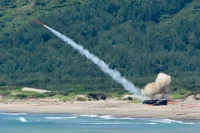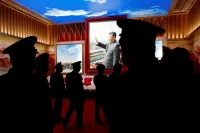Why Taiwan needs a third way
In 2014, after a 30-year career as an acute-care surgeon, I was elected the first non-party-affiliated mayor of Taipei, Taiwan’s capital, since it became a municipality overseen by the central government. I was re-elected in 2018, amid intense competition between the Democratic Progressive Party (DPP) and the Kuomintang (KMT). Over the past quarter century, these rivals have alternately held the reins of executive and legislative power, symbolising a lack of confidence among our citizens in the bipartisan system that had long dominated Taiwanese politics.
Advocating sweeping change, I established the Taiwan People’s Party (TPP) in 2019 and now seek the presidency in the election that is to be held on January 13th.… Seguir leyendo »















